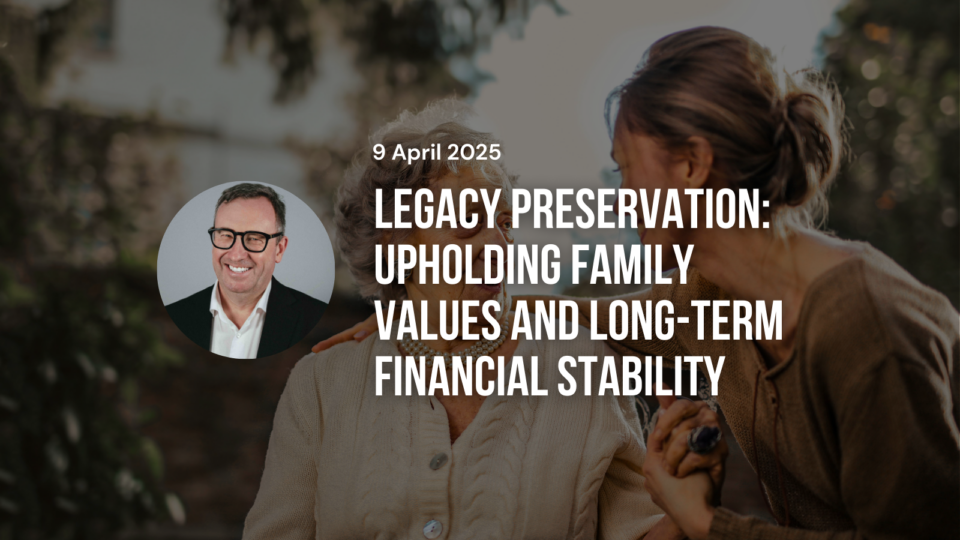

By Brendan Mutton, Selfwealth
8 November 2023
Changing Perceptions of the Advice Industry
When the ASX released its Australian Investor Study for 2023, it shed light on the financial advice landscape in Australia. A significant observation was the evolving attitudes of Australians towards financial advice. The study pinpointed an increase in ‘delegators’ — individuals leaning towards consulting a Financial Adviser due to unease in making investment decisions, which rose from 31% in 2020 to 34% in 2023.
To get an industry understanding of these perceptions, we spoke with two industry experts, Advisers Natallia Smith from the Melbourne-based boutique Advice firm TruWealth Advice Pty Ltd, and Matthew Brown of Your Corner 360.
The Cost Conundrum: Navigating the Financial Advice Landscape
Access to affordable financial advice remains a significant barrier for many Australians. The study underscored that while there’s a growing demand for financial advice, 34% of respondents expressed that obtaining financial advice is too expensive, a rise from 24% in 2020. Natallia Smith acknowledged the cost issue, emphasising that increasing levels of financial literacy is a challenge not just for the Advice Industry but also for broader stakeholders like Governments and educational institutions.
Natallia adds that she hasn’t experienced client attrition due to cost, but strongly believes the key lies in articulating the total cost and subsequently demonstrating value. In the absence of perceived value, cost will always be a deterrent. Her approach to managing cost-related discussions revolves around transparency; she recommends that Advisers ensure that all costs are disclosed throughout the advice journey in a clear and concise manner, and that clients should always understand exactly what they’re paying for.
Matthew Brown echoes these sentiments, saying that cost becomes a secondary consideration when the value is clearly articulated and demonstrated. He believes in building trusted relationships with clients and leveraging those relationships, for instance, by hosting events where clients can introduce their friends, further expanding the network.
Understanding Different Client Segments
The study also unveiled an interesting point in that 35% of female respondents expressed a preference for consulting a Financial Adviser, primarily due to their discomfort in making independent investment decisions. This statistic prompted a deeper exploration into the underlying reasons and the broader implications for the financial advice sector.
Natallia, with a significant portion of her clientele comprising divorced and widowed women, offered a unique perspective on this trend. She observed that many of these women had traditionally relied on male counterparts, be it husbands or fathers, to navigate the financial realm on their behalf. This reliance often stemmed not from a lack of capability but from established societal norms and roles. Consequently, these women find themselves in unfamiliar territory when faced with making financial decisions independently.
She highlighted a crucial aspect of her interactions with this client segment: the desire to be acknowledged as informed and capable. Her clients, she noted, are not seeking mere transactional advice. Instead, they require deeper understanding; a connection where their aspirations, fears, and motivations are genuinely recognised. They don’t wish to be perceived as uninformed but as individuals who process and digest information differently.
Matthew commented further on the broader societal reluctance to discuss money openly. He observed that this aversion to financial conversations often leads to a lack of confidence, especially when it comes to making pivotal financial decisions. The fear of exploitation or making an erroneous choice can be paralysing for many.
Both Natallia and Matthew wholeheartedly agreed that education is the cornerstone of bridging this confidence gap. They emphasised the importance of initiating the educational journey even before a client-adviser formal interaction. By ensuring that clients are equipped with foundational knowledge, Advisers can foster a more collaborative and empowering advisory relationship.
Matthew succinctly captured a prevalent mindset: “People’s primary financial aspiration often revolves around tangible assets, like owning a home. They don’t necessarily wake up thinking about life insurance or estate planning.” However, the role of an adviser extends beyond immediate needs. It’s about broadening the client’s horizon, making them cognizant of the myriad financial instruments and decisions that can shape their future.
Both also touched upon the topic of intergenerational wealth transfer, with the Advisers both underscoring the significance of early and inclusive family discussions, especially concerning estate planning. They advocated for proactive wealth distribution strategies, potentially even before the older generation passes on. This approach not only ensures smoother transitions but also equips the younger generation with the tools and knowledge to manage their inheritance responsibly.
Expert Insights on Making Financial Advice Affordable
Navigating the cost of financial advice — at least in the current environment — will be challenging for many Australians. Matthew and Natallia highlight the potential of robo-Advisers, digital platforms offering cost-effective advice tailored for self-directed investors. However, they stress that technology isn’t the sole answer. Education is key. They advocate for targeted financial literacy initiatives, such as workshops and podcasts, catering to different age groups.
Starting early is crucial; Natallia and Matthew recommend introducing financial discussions within families and schools. By integrating financial literacy into school curriculums, younger generations can be better equipped for future financial decisions.
Put more simply, both believe in a combined approach of leveraging technology and education to make financial advice accessible and affordable for all Australians.
The Future of Financial Advice in Australia
The landscape of financial advice in Australia is undeniably evolving, with changing perceptions and emerging challenges. The insights from seasoned Advisers like Natallia Smith and Matthew Brown provide a roadmap for navigating these shifts, but as Australia strides forward, the future of financial advice hinges on a blend of traditional values and technological advancements.
The journey may be intricate, but in lieu of regulatory changes, Advisers need to ensure the path to informed financial decisions is clearer for all clients. Like with Matthew and Natallia, their emphasis needs to be on education, transparency, and the integration of technology to underscore a holistic approach to financial planning.





